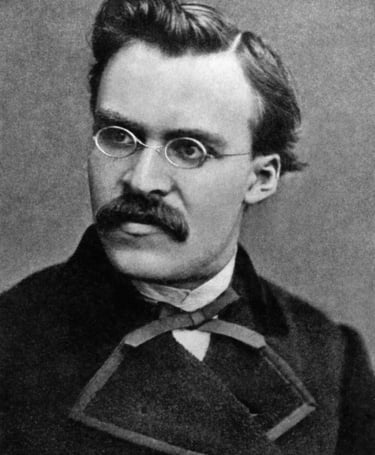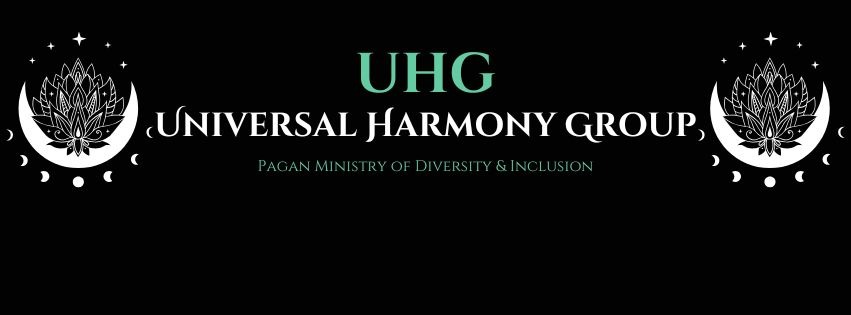Part 3 Empowerment: Breaking the Chains of Herd Mentality
Individuation and the Path to True Autonomy : This week we will be discussing the dangers of herd mentality and the impacts they have had on social justice in history. Further, we will discuss identification of oppressive tactics and what you can do to break out using your intuition for guidance.
Rev. Ellen Epperson
3/18/20258 min read


Welcome to the third part of our Empowerment Support Group. This segment deals with the importance of individuation to avoid the shackles of herd mentality. Key points in this discussion are as follows:
What does it mean to be an individual in a society that demands conformity?
How do fear and propaganda shape our perceptions of right and wrong?
Why do people marginalize, dominate, and oppress others when they themselves desire freedom?
The answers lie in understanding the herd mentality, a concept both Jung and Nietzsche warned against, and how individuation offers a path to self-liberation and ethical autonomy.
Introduction: The Battle for Individuality
Herd Mentality: The Root of Oppression
Herd mentality is a survival mechanism that once kept humans safe. However, in modern society, it often manifests as blind obedience, submission to authority, and hostility toward nonconformity.
1. Jung: The Collective Unconscious and the Shadow of Conformity
Jung argued that the collective unconscious contains archetypes that influence human behavior.
Societies develop cultural norms and moral standards that, when unquestioned, become psychological prisons.
When individuals suppress their true selves to fit in, they fall into the persona—a false identity that seeks approval from the herd.
The shadow self, which holds repressed thoughts and desires, is projected onto outsiders, leading to scapegoating and oppression.
2. Nietzsche: The Slave Morality and the Ubermensch
Nietzsche criticized herd morality, arguing that society’s rules often stem from weakness, fear, and resentment (ressentiment) rather than genuine virtue.
Slave morality values obedience and conformity, discouraging critical thinking and self-mastery.
The Übermensch (Overman), by contrast, transcends societal limitations, embracing self-overcoming and personal transformation to create their own values.
To break free from herd mentality, one must have the courage to question inherited beliefs and embrace self-authorship.
Part 1
Due to the nature of this particular topic I went with a different style format, using key points to spark a discussion. The subject of herd mentality builds on the previous two discussions in this series, but the object of this discussion was to use previous knowledge to identify the importance of individuation and identify tactics being used in our modern culture to oppress some demographics in our society, and what impact this has on our communities.
As you read through the bullet points of this lecture, stop to consider the ways in which you can apply these topics to your own life. Have you witnessed this behavior directly? Perhaps someone you know or love has. What was their reaction? What is your own personal view? If you are oblivious to things going on in our modern world, ask yourself, why is this when so many people seem scared or outraged.


Friedrich Nietzsche's philosophy presents a profound critique of what he termed "herd mentality" or "herd morality," which he believed stifles individual potential. He argued that this way of thinking promotes mediocrity by valuing conformity over excellence and self-overcoming, ultimately leading individuals to forsake their unique capabilities. Nietzsche referred to "the herd" as the common masses, who he perceived as lacking personal will and instead following group instincts.
Nietzsche contended that herd morality prioritizes the collective's needs and values, often undermining the pursuit of greatness and higher ideals. In his view, this form of morality, which he labeled "slave morality," celebrates weakness, humility, and conformity, consequently diminishing the importance of strength, independence, and the drive for self-actualization and transformative growth.
Can you think of a time when you were asked to or expected go to along with something you didn't want to? Maybe this was a behavior when you were a child. Were you asked to share a toy you didn't want to with someone you didn't like? Perhaps you had personal characteristics you were made to feel ashamed of? Maybe a family member's views on morality conflicted with your own views or personal logic?
If you've ever had such an experience, how did it make you feel? Was the feeling different for you as a child than as an adult? In what way? Do you harbor resentment? Do you feel happy and whole in your life now, or do you feel as you are always giving in to make another person happy? Alternatively, are you a person that expects others to yield to you? How does this make you feel? What are their feelings about you?
Herd mentality is often exploited by those in power to justify oppression, using fear and propaganda to maintain control.
1. Fear as a Tool of Domination
Extremist religious and political ideologies manufacture fear to keep people submissive.
Governments and institutions often use "us vs. them" narratives to create enemies and justify restrictions on freedom.
Fear-based messaging convinces individuals that safety lies in conformity, leading them to police and suppress each other rather than challenge authority.
2. Propaganda and the Illusion of Choice
Media, education systems, and religious dogma shape what people believe to be true, often presenting false choices.
Manufactured consent keeps people complacent, believing they are choosing their beliefs when in reality, they have been conditioned.
Those who question dominant narratives are ostracized, ridiculed, or punished.
Part 2
How the Herd Mentality is Weaponized
This was once a well known image around the world. Everyone recognized Adolf Hitler as the leader of the Nazi Party in Germany during World War 2. During my personal travels abroad I have had the opportunity to speak with people, who have since passed away from old age but who were children during the era, and listen to first hand accounts of what it was like to live in the Netherlands during Nazi occupation.
Prior to the beginning of WW2, Hitler campaigned as a leader of the people. He was an admirer of technology. He envisioned Germany as leaders in manufacture and innovation. He collaborated with designers to bring about an inexpensive, mass manufactured automobile, called the "Volkswagen". This economically innovative auto would be available to all Germans.




Adolf Hitler was initially raised Catholic and later identified as a Christian, but he sought to distance the Nazi Party from traditional Christianity. Instead, he promoted "Positive Christianity," which involved removing Christ's Jewish heritage and emphasizing Aryan traits, aligning with Nazi ideology. He marginalized traditional religious views and promoted a distorted version of Christianity that aligned with Nazi goals. Hitler was refashioned into the German Messiah. Hitler's manifesto, Mein Kampf, became a central part of Nazi ideology and was promoted as a sacred text for the German people.
Under Nazi rule, many groups were persecuted, including black people, homosexuals, Romani or "gypsies", disabled people, anyone deemed undesirable by the Nazi regime, or holding oppositional views, social outsiders, Jehovah's Witness, prisoners of war, and of course Jewish men, women and children. This led to many atrocities, including concentration camps, forced labor, horrific medical experiments and, including testing of chemical weapons such as Sarin gas which ended in mass genocide of the Jewish populace.
Nazi Germany: Will History Repeat Itself?
Breaking free from the herd mentality requires individuation—the process of integrating the unconscious self into conscious awareness. This is the journey to wholeness.
1. Facing the Shadow
Individuation begins with self-reflection and the courage to confront one's shadow self.
Question: What inherited beliefs have I never questioned?
Exercise: Journaling your shadow—write down the fears or prejudices you hold and analyze where they come from.
2. Embracing the Anima/Animus: Balancing Opposites
Jung argued that we must integrate both the masculine (logos) and feminine (eros) aspects of the psyche to become whole.
Breaking free from rigid gender roles and social expectations leads to greater intuition, balance, and autonomy.
Exercise: Reflect on biases related to gender, power, and societal roles—where do they originate?
3. The Übermensch and Self-Overcoming
Nietzsche’s Übermensch is not a dictator but an individual who has transcended external limitations.
To become the Übermensch, one must reject imposed morality and create one’s own guiding principles.
This requires courage, resilience, and the willingness to stand alone when necessary.
Exercise: Identify a belief you hold that contradicts social expectations—explore how you came to this conclusion.
Individuation: The Path to Liberation
Part 3
Breaking free from the herd mentality begins with the journey of individuation, or the process of integrating the unconscious self into conscious awareness. It is a journey of courage and personal growth that starts with facing the shadow. This requires deep self-reflection to confront hidden fears and prejudices. By questioning inherited beliefs, we can uncover the roots of these biases. Journaling serves as a powerful tool in this process, helping individuals articulate their fears and analyze their origins. Achieving wholeness also involves embracing the anima and animus, or balancing the masculine and feminine aspects of the psyche. By challenging rigid gender roles and societal expectations, we pave the way for authentic self-expression that honors our inner dimensions. This transformative journey fosters personal growth while cultivating deeper connections with others, leading to a more integrated and fulfilling existence.


Part 4
Intuition: The Inner Compass in the Face of Adversity
Once individuated, a person is guided by inner wisdom rather than external authority.
1. The Power of Intuitive Thinking
Herd mentality suppresses intuition, but intuition is our direct connection to truth.
Intuitive individuals recognize patterns in manipulation, seeing through propaganda.
2. How to Strengthen Intuition
Silence the noise: Limit exposure to fear-based media and propaganda.
Meditation and mindfulness: Train yourself to listen to your inner voice rather than external opinions.
Question everything: Before believing something, ask Who benefits from me believing this?
Test your gut feelings: Keep track of decisions made by logic vs. intuition and compare results.
Part 5
The goal is not isolation but a society where individuals think freely and act ethically.
1. Equality Through Uniqueness
True equality does not come from forced sameness but from recognizing that each person’s individuality is valuable.
If we embrace individuation, we reject the need to control others—allowing diversity to flourish.
2. Rejecting False Leaders
Any ideology that requires submission and unquestioning obedience is a red flag.
Individuals who have undergone individuation recognize the tactics of manipulators and resist.
3. Teaching the Next Generation
The greatest impact comes from teaching others to think critically and trust their intuition.
Exercise: Engage in open-ended discussions with others, asking: “What do you truly believe, and why?”
Building a Society Based on Individual Freedom
In a world where herd mentality often dominates, individuation emerges as the essential route to genuine freedom. Both Carl Jung and Friedrich Nietzsche illuminate the path toward self-liberation and ethical autonomy, urging us to break free from societal molds. To embark on this journey, we must cultivate the courage to question existing norms and the wisdom to trust our inner selves. Moreover, we must possess the integrity to act not just for personal gain, but for the collective good. As we reflect on our lives, we should ask ourselves a pivotal question: "Are you truly living as yourself, or merely conforming to the expectations imposed upon you?"
In Summation: The Call to Awaken


denise.uhg@yahoo.com
© 2025. All rights reserved.


CALL OR TEXT
(918) 840-6750
We have WhatsApp!


CONTACT US
